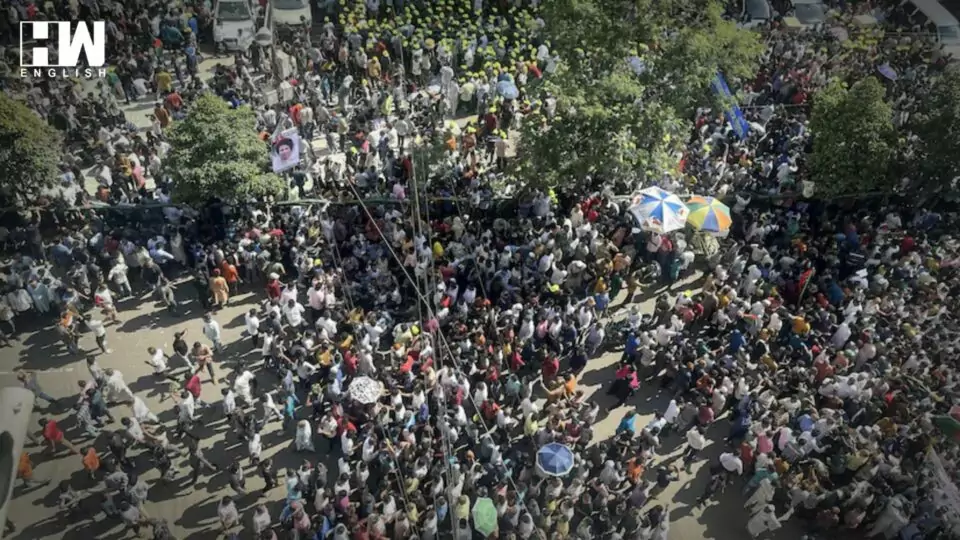Protection of the minority Hindu community who chose to stay back during partition is the duty of the state, says Dr. Mathai
Dr. Abraham Mathai, former Vice-Chairman of the Minorities Commission, condemned the recent attacks on the Hindu minority community in Bangladesh.
He said the violence and vandalism targeting the homes and businesses of this community by radical Muslims following the political upheaval are shocking acts that undermine the integrity of a nation striving for stability.
Dr. Mathai added It is the duty of the state—regardless of which political party is in power, whether it is the army or the police—to protect all its citizens, including the Hindu minorities.
He said: “These individuals chose to stay in Bangladesh in 1947 out of choice, not force or compulsion, placing their trust in the country’s rule of law and its people. Their continued presence over the years reflects their commitment to the nation, and it is incumbent upon the state to ensure their safety. The government cannot afford to turn a blind eye when the minority community bears the brunt of lawless radical elements who are intent on exploiting the crisis situation.”
It is deeply troubling that, amidst the political turmoil, radical Islamic extremists have targeted these vulnerable minorities. This situation also reminds me of the young Faraaz Hossain, who bravely stood against such radical Islamists during the 2016 terrorist attack on the Holey Artisan Bakery in Dhaka, Dr. Mathai said.
Despite having the chance to escape, Faraaz chose to stay and support his Hindu friends, demonstrating extraordinary courage. Tragically, his life was lost to these ruthless extremists who spared no one.
The Harmony Foundation also posthumously honored Faraaz with the Mother Teresa Award for his bravery, underscoring the high price paid by those who confront radical violence. His sacrifice exemplifies the severe consequences faced by individuals who oppose such ideologies, raising the question of how many more lives will be lost to these brutal attacks.
Dr. Mathai said: “Under any circumstances, it is not the duty of individuals and organizations to step in and provide the safety and security that should be the responsibility of the police and paramilitary forces. Muhammad Yunus, now heading the interim government, must use his influential position to restore law and order, hold the perpetrators accountable, and take necessary coercive action. It is essential that all arms of the government make the protection of minority communities a top priority.*
The critical question is whether Bangladesh has become a failed state, with government institutions becoming dysfunctional and requiring intervention from citizens and civil society organizations to restore sanity and good sense.
In these modern times, with global trends encouraging democratization, does the situation in Bangladesh undermine the very principles of the 1948 Universal Declaration of Human Rights, he asked.
This is a time for solidarity and mutual protection as Bangladesh navigates through its political crisis. Targeting already marginalized groups is a cowardly act and a betrayal of the trust that the Hindu minorities in Bangladesh have placed in the nation. It is crucial to ensure that such radical groups are dealt with appropriately so that the Hindu minorities are safeguarded against such violence.
A unified effort towards peace and justice is needed to rebuild the nation and ensure that every citizen, regardless of their background, can live without fear, Dr. Mathai concluded.
As an independent media platform, we do not take advertisements from governments and corporate houses. It is you, our readers, who have supported us on our journey to do honest and unbiased journalism. Please contribute, so that we can continue to do the same in future.

